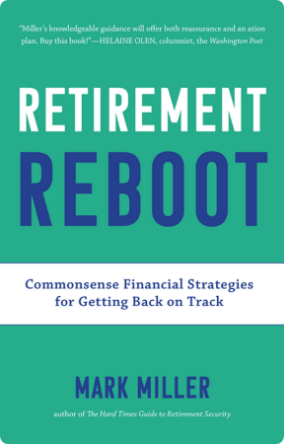Retirement planning is a critical aspect of financial well-being, yet many individuals find themselves unprepared for life after work. This article explores the latest news, trends, and strategies in retirement planning, offering insights and guidance to help individuals navigate the transition to retirement and achieve financial security in their golden years.
The Retirement Landscape: The retirement landscape is evolving rapidly, shaped by demographic shifts, economic trends, and changes in social and cultural norms. With longer life expectancies and rising healthcare costs, retirees are facing new challenges and uncertainties that require careful planning and preparation. Moreover, the traditional concept of retirement is being redefined, with many individuals choosing to work longer, pursue encore careers, or engage in volunteer work and leisure activities during retirement.
Key Retirement News and Trends:
- Retirement Age Trends: The retirement age is rising as individuals live longer and healthier lives. Many people are choosing to work beyond traditional retirement age, either out of financial necessity or a desire to stay active and engaged. This trend has implications for retirement planning, as individuals may need to adjust their savings goals and investment strategies to account for a longer time horizon.
- Social Security and Pension Concerns: Social Security and pension programs are facing financial challenges due to demographic shifts and changing workforce dynamics. Many retirees are worried about the long-term solvency of these programs and are seeking alternative sources of retirement income, such as personal savings, investments, and retirement accounts.
- Healthcare Costs and Long-Term Care: Healthcare costs are a major concern for retirees, particularly as they age and may require long-term care services. Rising healthcare costs, coupled with the potential for unexpected medical expenses, can erode retirement savings and jeopardize financial security. Planning for healthcare expenses and long-term care needs is essential for retirees to protect their assets and ensure peace of mind in retirement.
- Retirement Savings and Investment Strategies: Saving and investing for retirement remains a top priority for individuals of all ages. With the decline of traditional pension plans and the shift towards self-directed retirement accounts such as 401(k)s and IRAs, individuals are responsible for managing their own retirement savings and investment portfolios. Asset allocation, diversification, and risk management are key considerations for retirement investors, who must balance the need for growth with the desire to preserve capital and generate income in retirement.
Strategies for Retirement Success:
- Start Early and Save Consistently: The earlier you start saving for retirement, the more time your investments have to grow. Consistent saving and disciplined investing are key to building a nest egg that can support you in retirement. Take advantage of employer-sponsored retirement plans, such as 401(k)s and 403(b)s, and contribute as much as you can to maximize employer matches and tax advantages.
- Create a Retirement Income Plan: Develop a comprehensive retirement income plan that accounts for your sources of retirement income, including Social Security, pensions, retirement accounts, and other assets. Consider factors such as inflation, longevity, and healthcare costs when projecting your income needs in retirement.
- Consider Working Longer or Phased Retirement: If possible, consider working longer or transitioning to a phased retirement approach. Continuing to work part-time or on a consulting basis can provide additional income and benefits, while also allowing you to gradually transition into retirement and maintain social connections and a sense of purpose.
- Seek Professional Guidance: Retirement planning can be complex, and it’s important to seek guidance from financial professionals who can help you navigate the process. Consider working with a certified financial planner or retirement advisor who can help you set realistic goals, develop a customized retirement plan, and make informed decisions about savings, investments, and retirement income strategies.
Contact Information:
Email: [email protected]
Phone: 9671114235
Bio:
Remote work is reshaping the future of modern business, offering new opportunities for flexibility, efficiency, and talent acquisition. By embracing remote work, modern businesses can unlock new levels of productivity, collaboration, and innovation, while also addressing the evolving needs and preferences of employees
Disclosure:
John James O’Grady










